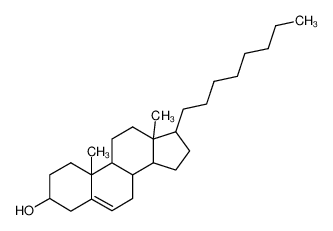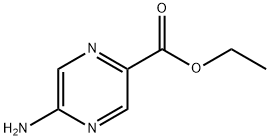Hello, I'd like to ask, what does high triglycerides mean? And why is it a concern? Also, how is high triglycerides related to dietary habits?
What impact does high triglycerides have on various organs in the body?
What are some ways to improve high triglycerides?
What Does High Triglycerides Mean?
Related Encyclopedia
Related Products More >
-
- 57-88-5
- Request For Quotation
- 25kg/Cardboard Drum
-
- 57-88-5
- Request For Quotation
- 1kg,25kg or according to customer's detail requirement.
-
- 57-88-5
- Request For Quotation
- 1kg Consult customer service
-
- 57-88-5
- Request For Quotation
- 25kg/package
-
- 57-88-5
- Request For Quotation
- 1kg/Aluminum Foil Bag, 5kg/Carton, 10kg/Carton, 25kg/Paper Drum, 50kg/Paper Drum
-
- 57-88-5
- Request For Quotation
- 25kg/drum
-
- 57-88-5
- Request For Quotation
- 25kg/drum
-
- 57-88-5
- Request For Quotation
- 1kg/bag;25kg/Cardboard Drum




 沪ICP备2021018848号-5
沪ICP备2021018848号-5

In daily life, managing high triglycerides is crucial for long-term health. For instance, adopting a balanced diet low in refined carbs and saturated fats while increasing omega-3-rich foods like fish can help lower levels. Regular physical activity, such as brisk walking or cycling, also plays a significant role in reducing triglycerides.
When addressing high triglycerides, several considerations matter. First, regular blood tests are essential to monitor lipid levels. Avoiding alcohol and sugary beverages can significantly improve outcomes. Additionally, medications may be prescribed if lifestyle changes aren’t sufficient. By staying proactive about diet, exercise, and routine check-ups, individuals can reduce their triglyceride levels and lower the associated health risks, ultimately promoting better cardiovascular health.
Why High Triglycerides Are Dangerous
Triglycerides are a type of fat (lipid) that provide energy, but elevated levels (>200 mg/dL) contribute to:
Cardiovascular Disease – Promotes artery-clogging plaque.
Pancreatitis – Extremely high levels (>500 mg/dL) can trigger inflammation.
Insulin Resistance – Linked to type 2 diabetes and fatty liver disease.
Normal vs. High Levels:
Normal: <150 mg/dL
Borderline High: 150–199 mg/dL
High: 200–499 mg/dL
Very High/Dangerous: ≥500 mg/dL
How Diet Affects Triglycerides
Foods That Raise Triglycerides:
Sugar & Refined Carbs (soda, white bread, pastries) → Spike blood fats.
Alcohol → Boosts liver triglyceride production.
Saturated & Trans Fats (fried foods, processed snacks) → Increase lipid levels.
Foods That Lower Triglycerides:
Omega-3 Fatty Acids (fatty fish, flaxseeds) → Reduce triglycerides by 20–50%.
Fiber-Rich Foods (oats, beans) → Slow fat absorption.
Healthy Fats (avocados, nuts) → Improve lipid metabolism.
Effects of High Triglycerides on Organs
Organ Impact
Heart Atherosclerosis → Higher heart attack/stroke risk.
Pancreas Acute pancreatitis (life-threatening inflammation).
Liver Fatty liver disease (steatosis).
Blood Vessels Endothelial dysfunction → Poor circulation.
How to Lower Triglycerides Naturally
1. Dietary Changes
Reduce sugar & alcohol – Major triggers.
Eat more omega-3s – Salmon, chia seeds.
Choose low-glycemic carbs – Quinoa, sweet potatoes.
2. Exercise Regularly
30+ mins of cardio daily (walking, cycling) burns triglycerides.
3. Weight Management
Losing 5–10% body weight can lower triglycerides by 20–30%.
4. Medication (If Needed)
Fibrates (e.g., fenofibrate) – Best for very high levels.
Statins – If cholesterol is also elevated.
Prescription omega-3s (Lovaza, Vascepa).
There is a strong link between high triglycerides and diet. Consuming a diet high in refined carbohydrates, such as white bread and sugary drinks, and saturated and trans fats, like those in fried and processed foods, can significantly increase triglyceride levels.
High triglycerides can have negative effects on various body organs. It can increase the risk of heart disease by contributing to the buildup of plaque in the arteries. It may also affect the liver, leading to fatty liver disease. Additionally, it can impact the pancreas and increase the risk of pancreatitis.
To improve high triglyceride levels, one should adopt a healthy diet low in refined carbs and fats, increase physical activity, maintain a healthy weight, and limit alcohol consumption. In some cases, medication may also be necessary.